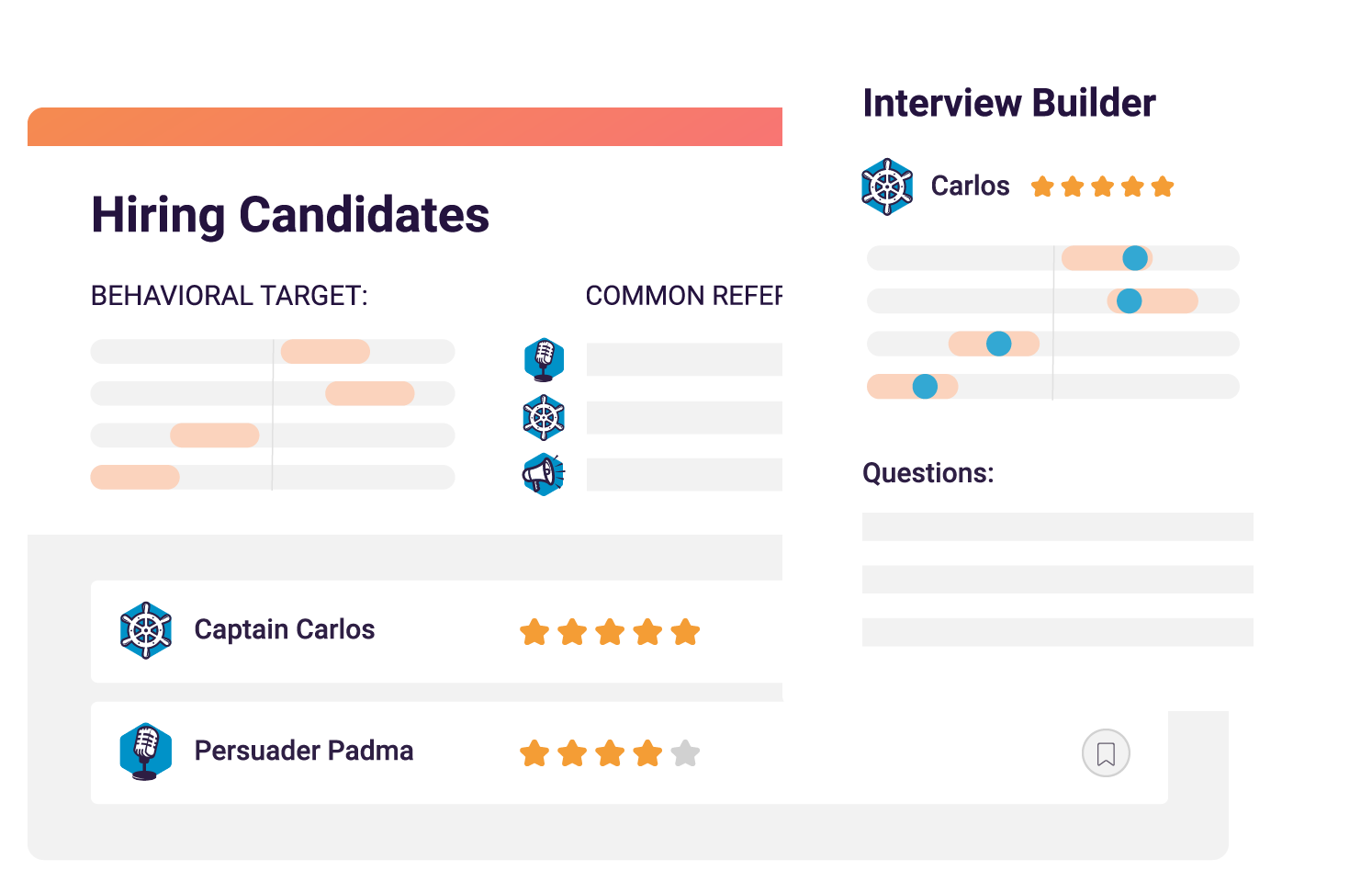It’s hard out there for a hiring manager. People have left the workforce at record rates over the past year, and they’re not necessarily returning. No industry or position is immune, but sales roles have been especially susceptible to the turnover turmoil.
Good candidates are often scarce. And with employee retention a constant concern for any organization, accuracy is at a premium. You simply can’t afford mishires.
Hang in there, though, hiring hero. There are ways to narrow the gap. Namely, behavioral data can help you identify the right fit for a role. And when you know what behaviors lead to success in a role, you can hire with confidence.
Don’t get caught up with a person’s technical background. You can teach skills; you’ll have far less luck changing someone’s behavioral makeup. As you seek out that all-important sales manager, you’ll need to ask the right questions to find the right person.
We’ve got you covered. Wondering how to hire a top-performing sales manager? Start with questions that get right at the behaviors and competencies the role requires.
Let’s say your behavioral target indicates this person should be persistent, risk-tolerant, and, since they’re on the phone an awful lot, extraverted. Here are five questions you might ask to hone in on this target candidate:
5 interview questions to ask when hiring for a sales manager
- Tell me about a time when you quickly determined how much a project would cost.
- How might you go about convincing someone to accept an unpopular viewpoint?
- Describe a time when you volunteered for something that didn’t fit your role.
- How do you keep a project moving forward when you’re not seeing results?
- Tell me about a time you spoke up for someone whose voice wasn’t being heard.
These behavioral interview questions can quickly confirm or deny your hunches. They’re designed to help answer a crucial question: Is this person who we think they are?
And since you’ve already identified your job target, a simple “yes” can dramatically reduce your time to hire.
The anatomy of a behavioral interview question
Let’s dissect each of the questions we’ve suggested for the sales manager interview. None of these are random. They’re all crafted with purpose and care — interviewing art, rooted in science.
For instance:
Tell me about a time when you quickly determined how much a project would cost.
This is the starter question—simpler than your follow-ups, but still designed to gauge a key competency. You want to confirm this person can work with financial information, and can come up with figures and answers on the fly if needed. It’s also (as all of these are) open-ended. The interviewee can’t skate by with a yes/no answer.
How might you go about convincing someone to accept an unpopular viewpoint?
Now you’re leveling up, getting more complex with your line of questioning. You’re assessing the candidate’s persuasive abilities—core to success in the sales manager role—while also appealing to their diplomacy and personality. After all, they’ll be managing people.
Describe a time when you volunteered for something that didn’t fit your role.
Initiative. Intuition. A team-oriented mentality. This question uncovers a person’s ability to recognize a need and address it, regardless of whether their job description says to. If they provide a detailed example, you know they possess those attributes you need.
How do you keep a project moving forward when you’re not seeing results?
This question brings together multiple competencies and behaviors. For one, the answer speaks to the candidate’s ability to motivate and rally (both themselves and others). It also draws on their persistence. How did they handle unexpected adversity? What did they learn? How did the project ultimately play out? You’ll uncover a lot about the person if they offer a thorough answer rooted in real workplace experience.
Tell me about a time you spoke up for someone whose voice wasn’t being heard.
By now, you’ve covered nearly all the skills, competencies, and core behaviors that matter most for this role. You’re clear on this person’s head, as well as the briefcase (resume) they’d bring. But at PI, we’re also concerned with their heart.
This question focuses on those intangible qualities that help bolster culture. Empathy is arguably an essential trait for any people manager. And if yours is an organization that employs behavioral data, that empathy is a key indicator of emotional intelligence.
Did the candidate’s example show they were not only empathetic, but keen to the needs of their colleagues? That answer might matter more than any savvy sales tactics they know, or the degrees they hold.
How PI can help
No two interviews should be the same. Each candidate comes with a unique behavioral makeup, and if you’re doing your homework, those behaviors should align with the target you’ve established for the role.
PI Hire makes each step easier. Buoyed by scientifically validated assessments, our software gives you clarity throughout the hiring process.
Know the right fit for any role, and then nail that hire by tailoring your interview questions accordingly.








